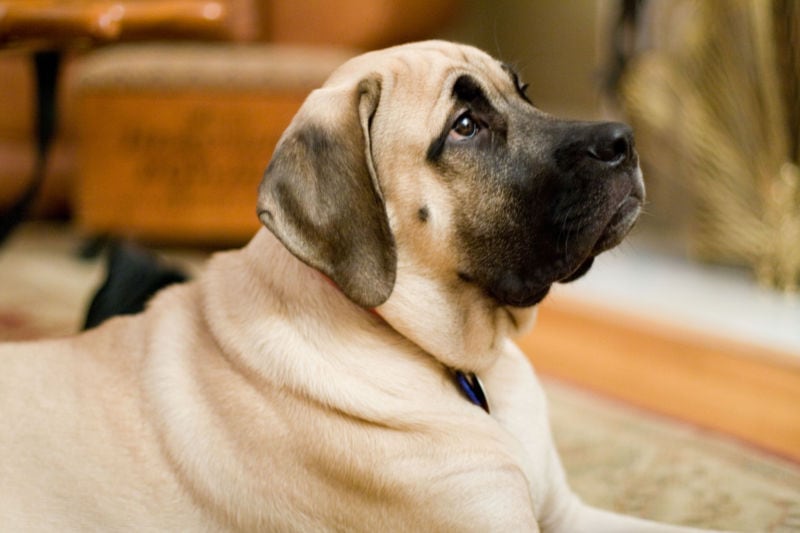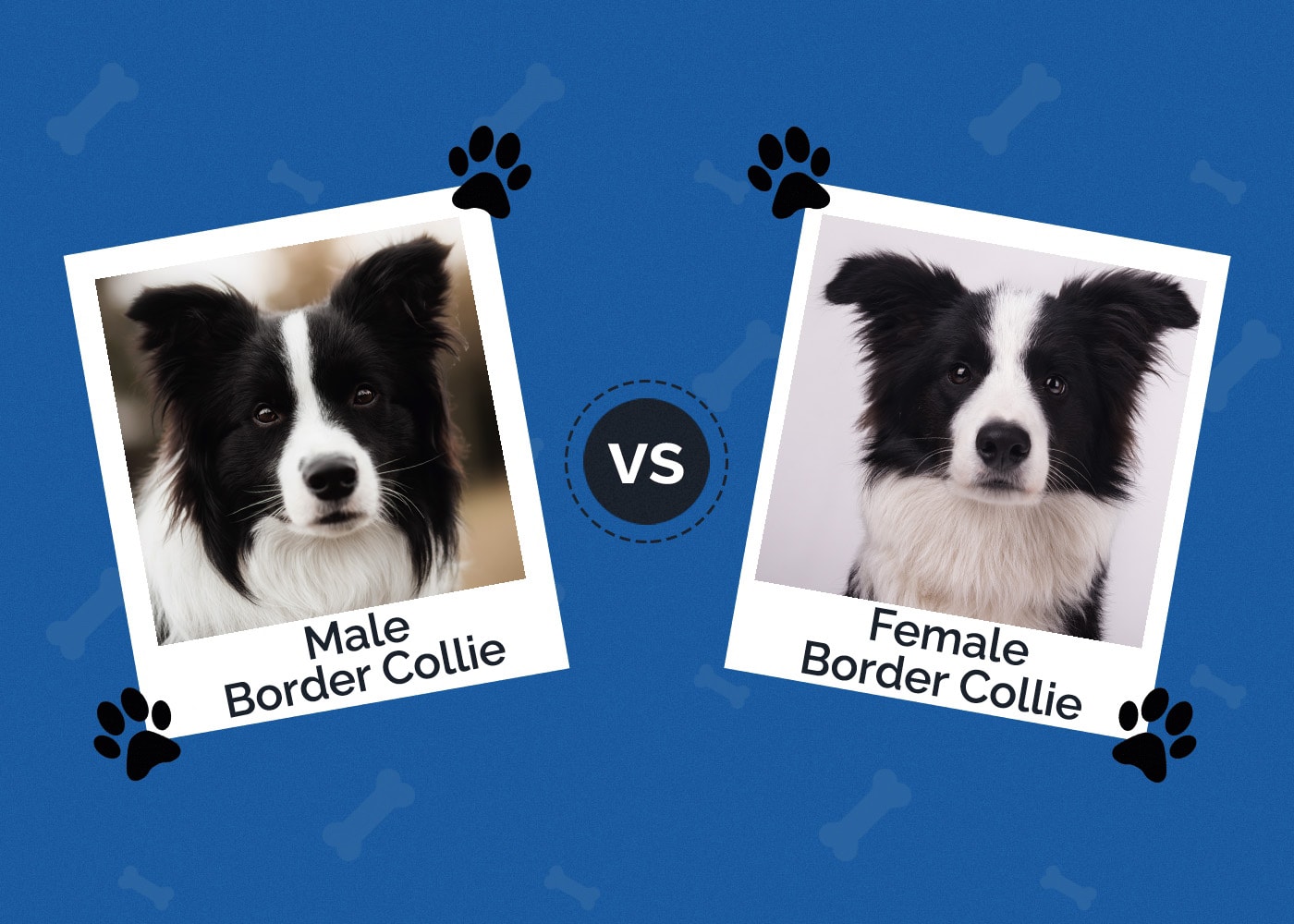Why Does My Dog Poop in His Crate? 10 Vet-Reviewed Reasons
Updated on
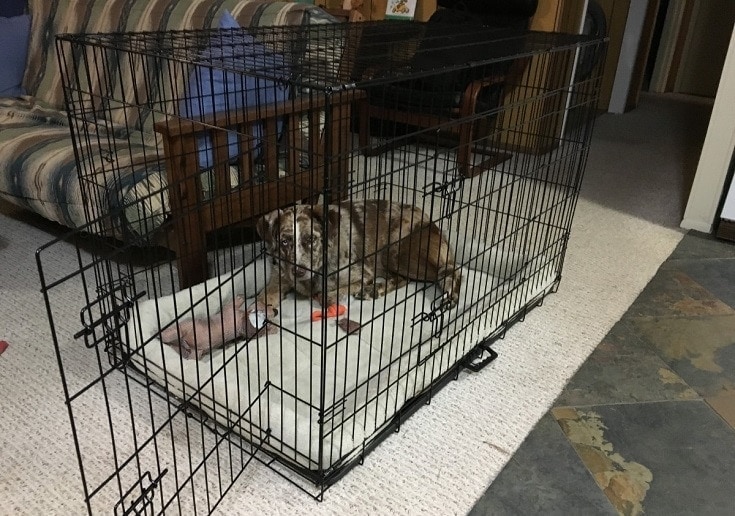
Your dog’s crate is meant to keep your dog safe and provide a comfortable sanctuary for them. But if you’ve been finding that your dog has been pooping in their crate, you might be concerned.
This isn’t normal behavior because dogs have the instinct to keep their dens clean. If this seems to be occurring more frequently lately, there might be something wrong, so it’s a good idea to investigate what the problem might be. Here, we discuss what might be going on with your dog and give you a few tips on how to best handle the situation.
The 10 Potential Reasons Your Dog Poops in Their Crate
1. Unfinished Housebreaking
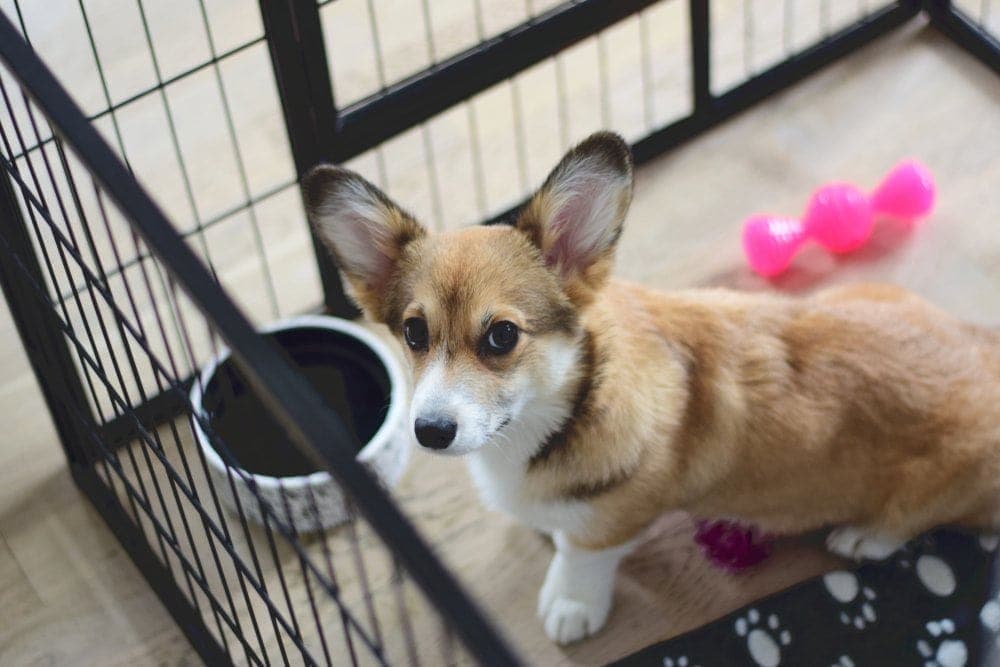
On average, most dogs are housebroken by 4 to 6 months of age, but it can take up to a year for some dogs. If you’re still in the process of housetraining your dog, it might just be that your pup needs extra time to learn this skill.
Continue the process, and remember to take your dog out every 2 hours and around 30 minutes after eating. Continue to praise your dog for the successes, and consider bringing in a trainer if it seems to be problematic.
2. In the Crate Too Long
Sometimes, you need to keep your dog in the crate for long periods of time. But just like us, a dog can only hold on for so long before desperate times call for desperate measures. If you have no choice but to leave your dog in their crate all day while you’re at work, you might want to rethink the crate.
If you can’t make it home yourself for lunch, consider hiring a dog walker to give your dog a break halfway through the day, or try doggy daycare. Perhaps you have a small room that you could dog-proof and place pee pads on the floor.
3. Stress and Anxiety
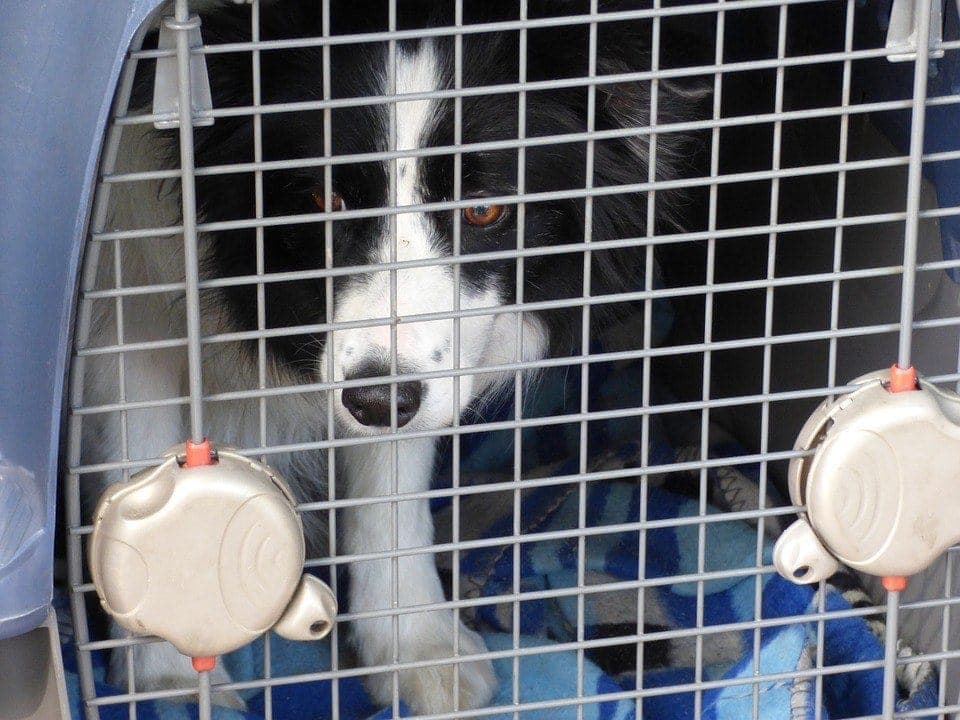
A dog that is feeling quite stressed or is suffering from separation anxiety could be pooping in the crate as a reaction to that stress. If your dog does appear anxious and upset when you leave, they might become distraught enough to defecate. It’s almost an involuntary act. It could also just be a reaction to being placed in the confined space of the crate to begin with.
You’ll need to work toward making your dog more comfortable in the crate. Figure out what makes your dog happy. Leaving the TV on or playing music while you’re out can help, as can favorite toys, puzzle games, and calming aids that can keep your dog occupied and feel less anxious while you’re out.
4. Improperly Sized Crate
Crates that are too large can actually be a bad thing. Crates need to be big enough for your dog to be able to stand up fully without stooping, turn around, and fully lie down with their legs out, but it should be no bigger than that.
It might seem more logical to give your dog plenty of space, but that gives them enough room to not technically poop where they sleep. This detail is even more important when you’re housebreaking a puppy or retraining a rescue.
5. Gastrointestinal Issues
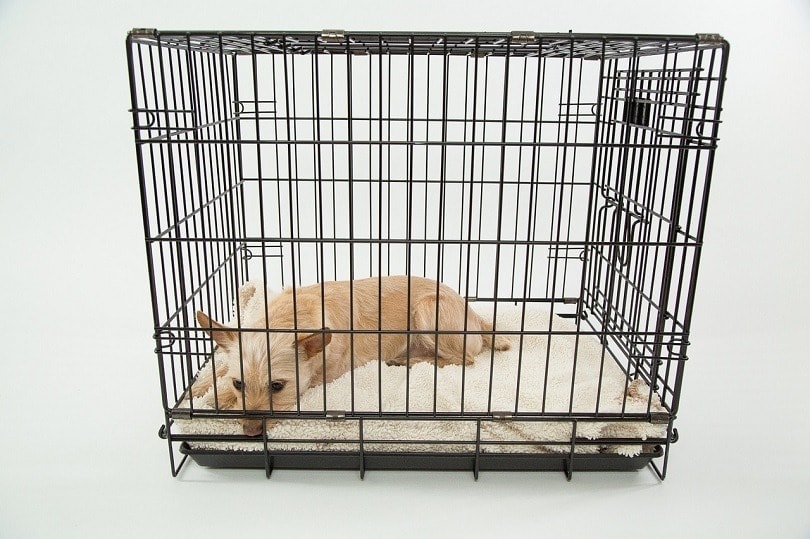
If the poop is smelly and runny and your dog has other stomach problems, it could be inflammatory bowel disease or digestive issues. Dogs can be allergic to several different foods, but among the most typical are certain meats, with chicken being the most common.
See your vet if you suspect that your dog might be having gastrointestinal problems. You’ll usually need to make a change in their diet or even put them on a limited-ingredient diet in some cases.
6. Physical Injury or Trauma
When a dog has suffered an injury or some kind of trauma, they can sometimes lose control of their bowels and/or sphincter. This means many more accidents may happen in the crate.
There is no real fix here other than time for healing. But you’ll need to take your dog to the vet for follow-up checkups to ensure that everything is healing up properly. Treatment will depend on the injury and underlying cause.
7. Medications
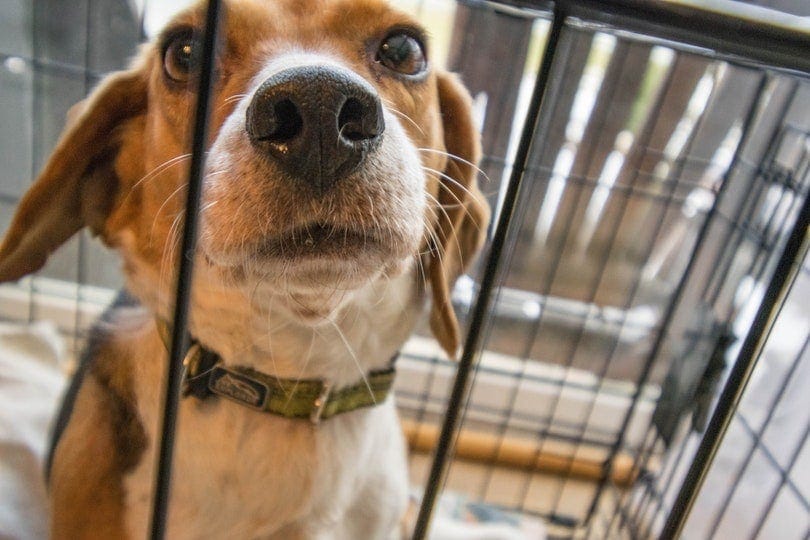
Certain medications affect the dog’s bladder and bowels and can cause incontinence and frequent defecation. If your dog was recently put on a new medication and you’ve just noticed pooping issues, it’s likely to be from the meds.
You should speak to your vet about the side effects and discuss what the options are.
8. Nerve and Muscle Disorders
Certain diseases affect the nerves or muscles, causing degenerative weakness in the hindquarters. This can lead to issues like a loss of control of the bowels.
An example of this is degenerative myelopathy, which needs to be diagnosed and treated by a vet.
9. Tumor
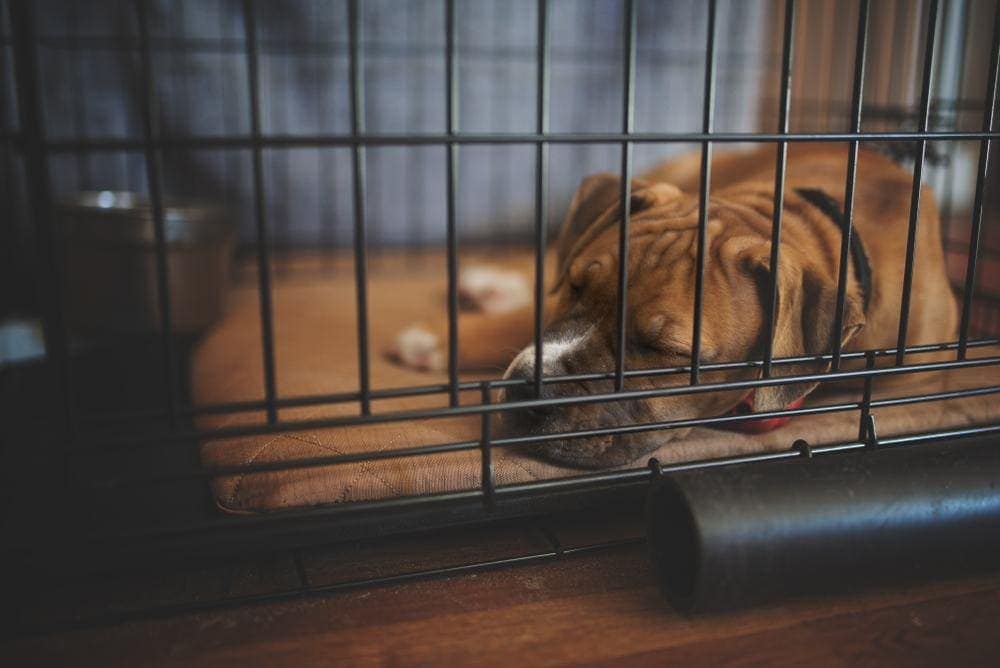
If a dog has a tumor close to their rectum, the mass can interfere with their gastrointestinal tract. Tumors can grow in many places, including close to the sphincter, which can definitely cause issues around pooping.
Your only option here is to have regular visits to the vet, particularly so they can catch any tumors before they get any worse. Some tumors are easily removed, while others might need aggressive treatment.
10. Incontinence
Fecal incontinence can occur in some dogs. It can happen after an injury, but it can also be common in senior dogs. As they age, their digestive tract starts to wear down, so they are unable to hold onto their bowel movements for long.
Your vet can help you manage the problem and perhaps lessen it to an extent, but this is just a reality of owning a senior dog. You can consider diapers for dogs, but you’ll still want to take your dog out for more frequent walks, which can ensure their comfort and health.
Conclusion
Probably the most typical reasons for your dog pooping in their crate are being left in the crate for too long and needing extra training. But there are many other reasons, so this is where observation at home and speaking to your vet should be most helpful.
Related Reads:
- Why Does My Dog Steal My Clothes? 5 Reasons and How to Stop It
- Why Does My Dog Steal My Shoes? 6 Reasons and How to Stop It
Featured Image Credit: Alan Levine, Pxhere




